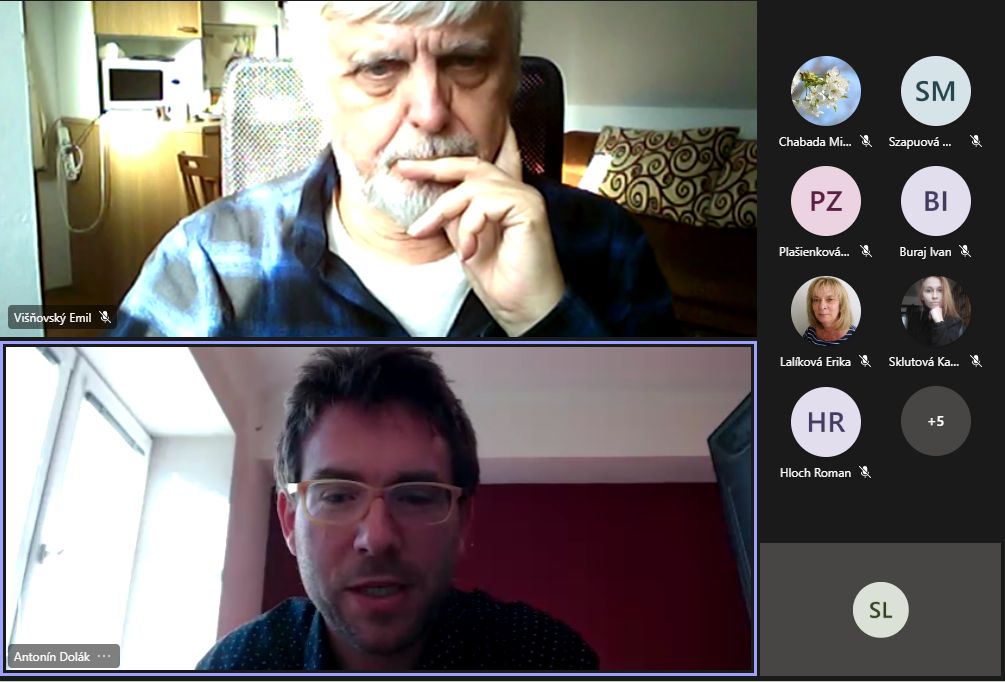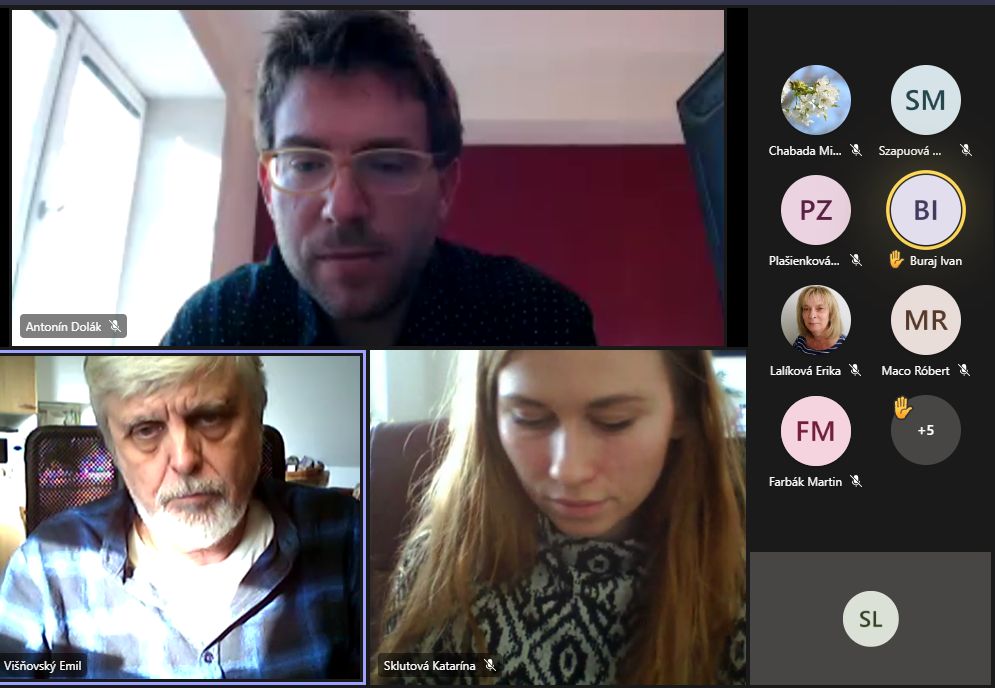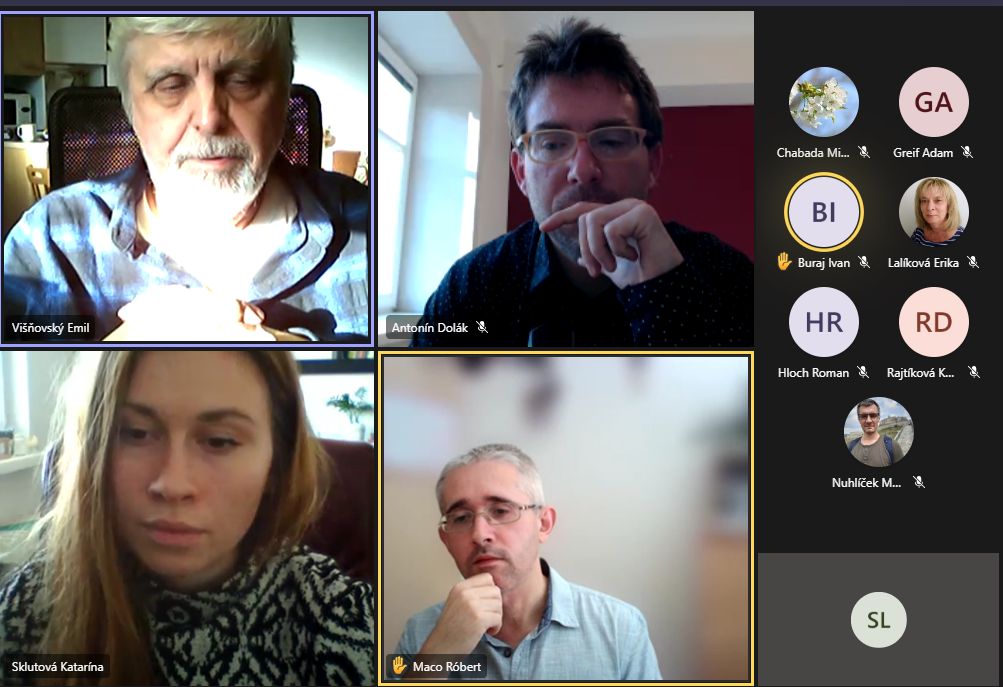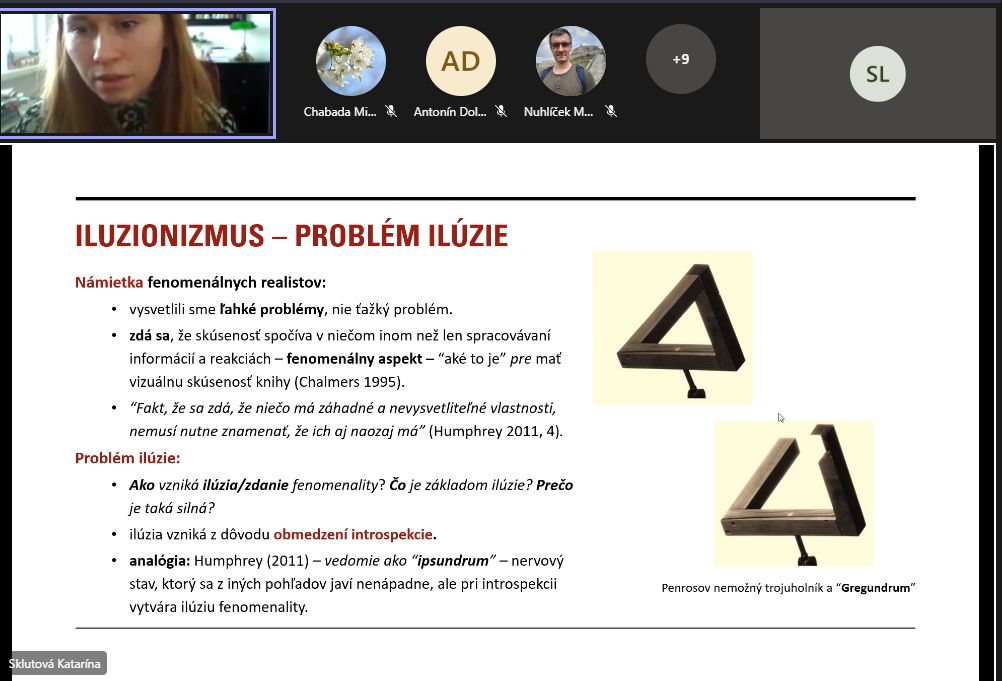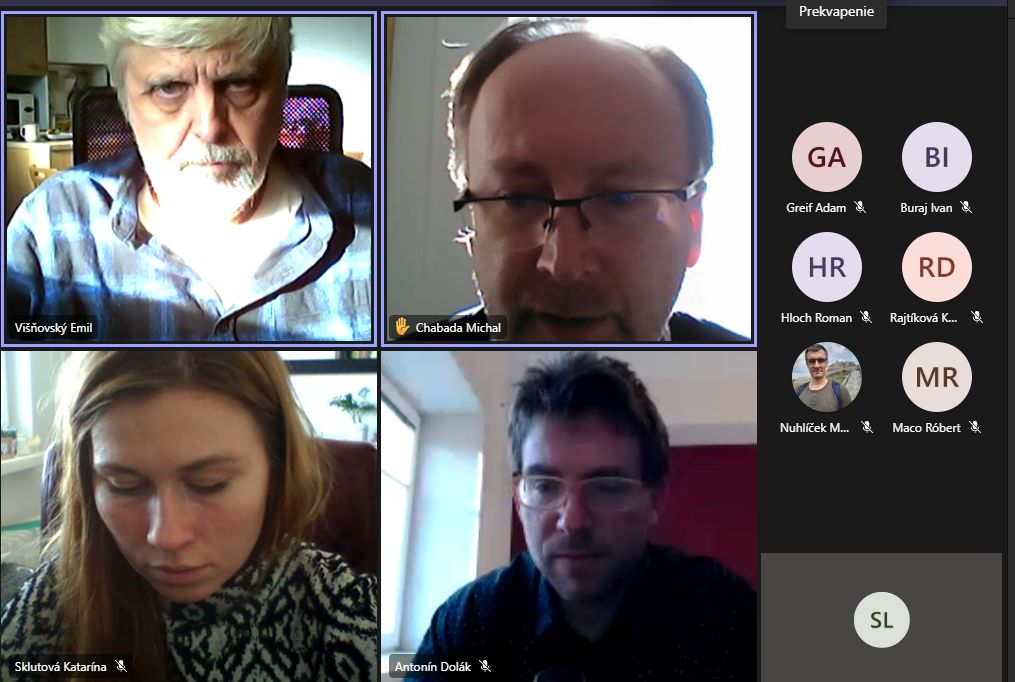
Our fourth workshop took place on the 3. 12. 2021. The topics dealt in the workshop were related to the philosophy of mind and consciousness. The online meeting was opened and moderated by prof. Emil Višňovský, who has introduced the subject matter traditionally influenced by cartesian dualism and also one of the sources of anti-naturalism. Nevertheless, some new contemporary theories, such as "Neuro-pragmatism", make significant contributions towards "naturalisation" of mind and consciousness. One such theory is "ilusionism", which was introduced at the workshop by Mgr. KAtarína Sklutová from the Department of Philosophy and History of Philosophy.
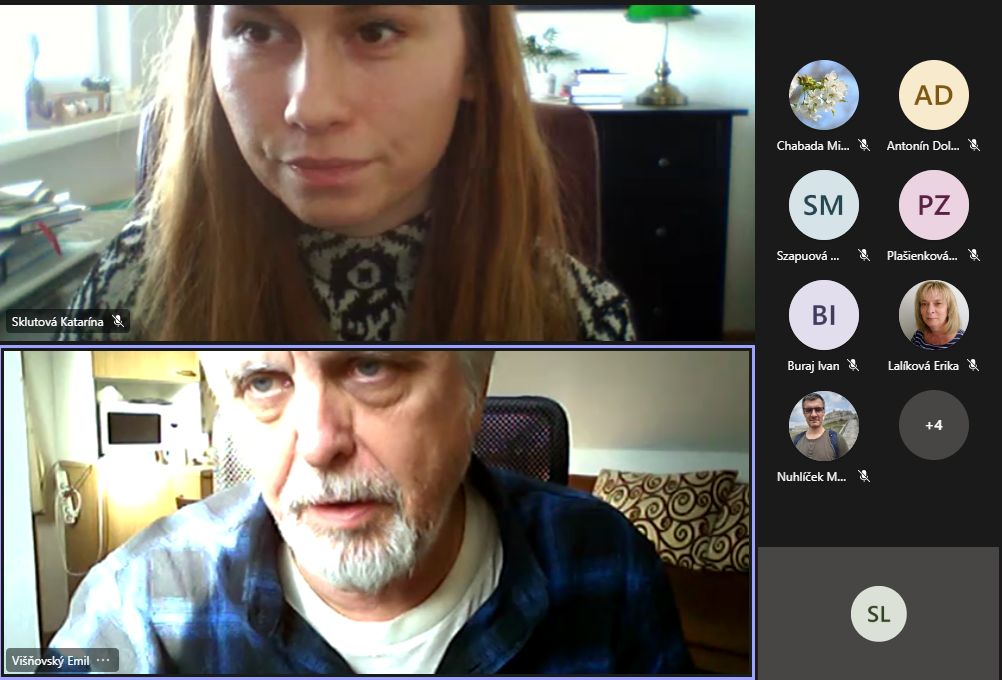
Illusionism, as one of the theoretical position in contemporary philosophy of consciousness, was formulated by Keith Frankish in his paper Illusionism as a Theory of Consciousness (2016). But the position is not entirely new and we can find, for example, Daniel Dennett among its longstanding defenders. The ilusionists assume that the „phenomenal character“ (phenomenal properties, qualia) of conscious experience is an illusion produced as an artifact of limits of introspection. The illusionism then substitutes the „hard problem of consciousness“ with „problem of illusion“, that is, with the problem of why it seems that experiences have phenomenal properties. Given that illusionism rejects the phenomenal character of consciousness, most o philosophers of mind take the position to be radical and eliminative. But their criticism is mostly a consequence of the assumption that the phenomenal character is a fundamental explanandum of consciousness - a being is conscious insofar as it is sensible to ask what it is like for them to be from their own subjective perspective. While the illusionists do reject this conception of consciousness, they do not reject it per se. The opposite is actually the case, since illusionism is naturalistic position regarding consciousness to be a natural phenomenon explainable on the basis of ongoing investigations in cognitive sciences and neuroscience. From the point of view of our naturalist theory, we should then reject those properties (e.g., phenomenal character, qualia) of consciousness that are in conflict with (or, at least, dispensable for) empirical research. To quote the illusionists: consciousness may not be what it seems.
Both contributions elicited lively discussion and polemics, centering around the questions of human subjectivity, introspection and the so called problem of qualia. The workshop provided us with new impulses for future work within the project and justifed its connection to main currents in contemporary international philosophy in the area.
This text is a translation of a report written by prof. Emil Višňovský originally published here.
The record from the workshop can be viewed here:

